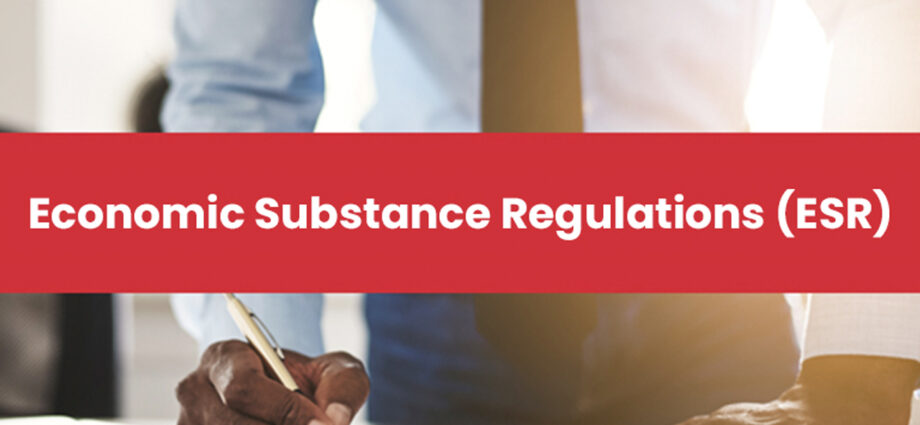In recent times, the implementation of Economic Substance Regulations (ESR) in the United Arab Emirates (UAE) has significant implications for various entities, including institutions, free zone and inland companies, non-governmental organizations (NGOs), branches, and associations. These regulations encompass a range of activities, as outlined below:
Key Activities Covered by Economic Substance Regulations:
- Insurance agencies
- Banking institutions
- Investment Fund Managing firms
- Shipping companies
- Lease finance firms
- Headquarter companies
- Intellectual property businesses
- Holding company firms
- Service and Distribution center entities
The UAE Economic Substance Regulations Relevant Activities Guide, recently issued by the Ministry of Finance, provides detailed insights into these activities and their implications.
Understanding Economic Substance Regulations:
One of the core principles emphasized by the Economic Substance Regulations is the concept of “substance over structure.” This means that UAE-based companies must assess whether they engage in any Relevant Activity, not solely based on formal documentation such as registration certificates or business licenses, but also by considering the actual activities conducted within a financial period.
According to the Ministry of Finance, a licensee is deemed to carry out a Relevant Activity even if they are not actively involved in one of the specified business categories. For instance, passive income receipts related to Relevant Activities fall within the scope of these regulations.
Requirements under the Economic Substance Regulations:
Every licensee undertaking Relevant Activities must submit a notification to the relevant regulatory authority as specified by the Economic Substance Regulations. Additionally, for each financial period, licensees engaged in one or more Relevant Activities and generating income from such activities in the UAE are required to undergo an “economic substance test.”
Subsequently, an economic substance report must be filed with the appropriate regulatory authority within a year of the conclusion of the relevant financial period. However, exceptions apply to entities that are directly or indirectly owned by the Government of the Emirates or other government authorities.
Compliance and Regulatory Procedures:
The regulatory authority may vary depending on the type of Relevant Activity and jurisdiction. Each regulatory body defines specific forms and procedures for compliance, which businesses must adhere to. Given the ongoing impact of COVID-19, it is essential for businesses to take appropriate actions to comply with these regulations while considering the prevailing circumstances.
According to reports from reputable sources, the deadline for notifying the Ministry of Finance has been set for 30th June 2020, as communicated to relevant regulatory authorities. Failure to comply with the regulations may result in administrative penalties, spontaneous information exchange with the Foreign Competent Authority, and potential suspension, non-renewal, or revocation of registration.
About GCC Filings:
GCC Fillings, a reputable firm, offers comprehensive services including accounting, management, finance, taxation, VAT registration in the UAE, business analysis, and more. With their expertise and guidance, businesses can navigate complex regulatory requirements and enhance their operations effectively. Trusting GCC Fillings ensures that your business receives the necessary support to thrive in the ever-evolving landscape.
In conclusion, understanding and complying with the Economic Substance Regulations are crucial for businesses operating in the UAE. By adhering to these regulations and seeking assistance from reputable firms like GCC Fillings, businesses can ensure compliance while optimizing their performance and growth potential.
